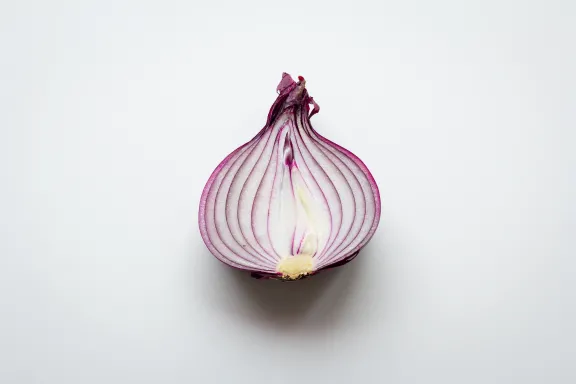
An OpiNION on diversity
The description of heaven as an onion, having multiple different layers to explore as a metaphor in the chronicles of Narnia has always amused me.
The analogy of this cheap vegetable, often worth less than a dollar per bulb, being used to describe the grand vision of the kingdom of God seems ironic at times.
In today’s age of divisiveness however, I have found that this same analogy to be very helpful in looking at diversity.
Learning to love layers
Just like an onion, there are also layers to people. In how to cook an onion 101, we first learn that we have to peel onions.
A good chef would care a lot more about what’s on the inside of the onion, rather than its external fibrous skin.
Why then, do we view people in a similar manner, on the surface? When I first moved to San Francisco, I was very drawn to a multiethnic church near Japan Town.
This church did not only have a diversity of race, but also in thought, education, age and social class.
I found myself to be one of the most highly educated people there. Yet despite our differing views and backgrounds, these people have taught me how to be hospitable to people, love others and give great insight to re-examining my own life and faith.
This has taught me that viewing people as singular issues e.g., race or political stance makes it very easy to dislike people.
It would be pretty much like eating only onion skin and concluding that therefore you don’t like onions.
Dig deeper into the layers, and you will realize that knowing people as a whole make them a lot more enjoyable to be with.
Cooking involves different types of onions
So far, as I write this analogy, what comes to mind is the common yellow onion.
However, all good cooks know that there are many types of onions; purple onions, white onions, spring onions and shallots, to name a few.
The yellow onion is great for many purposes like stir fry and onion rings, but it will never have the same crispiness and sweetness as thinly sliced and fried shallots.
In the same way, we need to embrace diversity as we all bring our unique experiences and flavours to the table.
I grew up in a country where structure and efficiency were highly valued. Everything had a set of protocols and instructions.
I became a good administrator in this regard too, creating and executing systems efficiently.
Since moving to the US, many people have come to appreciate my administrative talents too in event organization.
At the same time, I have also learned to embrace the more spontaneous American culture and not follow plans to a tee, which has opened me up to a lot more possibilities and less stress about planning.
A life of only yellow onion dishes would definitely be less tasty than when we can have purple onion pickles instead and spring onion as garnish for our egg fried rice.
It takes time to learn to cook different onions
When I first started cooking, I didn’t know that the tops and bottoms of spring onions had different uses.
It also took me some time to learn that chives and spring onions were not the same thing.
The more I learned to cook however, the less I was intimidated by the new ingredients.
Learning about others can be intimidating initially, but the more we expose ourselves to people different from us, the more comfortable we become.
When I first started working as a volunteer pharmacist with Bangladeshi migrant workers at a community clinic in Singapore, I was nervous.
These men were from a completely different culture and language, leaving most of our communication to simple broken English.
Over time however, as I warmed up to them, I started to get help from within their community too with the more proficient English speakers helping me to translate for their counterparts.
I began to have conversations too with some of them about their lives, work in Singapore and hopes for the future.
Through our engagements, I found a wide variety of talents among these men, from poets to break dancers to photographers.
It took time, but when I was able to, I learned about a new culture and became richer with new friends.
Concluding thoughts
It might be tempting to want to judge an onion simply by its skin and to stick to one type of onion all the time.
But the more I learnt to cook, the more I found that what mattered most was not the skin but the layers inside that mattered.
Embracing the wide variety of onions also allows for much more flavourful dishes and through exploring new varieties, we can make our lives a lot richer.
Consistently learning from others helps us to check ourselves too, lest we become steeped in any harmful ideologies.



